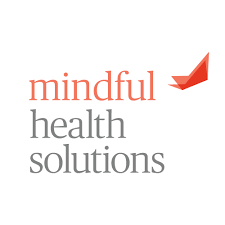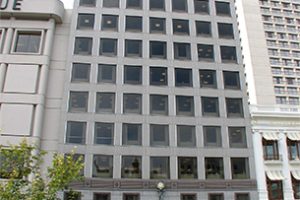

We’re a team of clinicians and staff who have dedicated our lives to research, education, and treating those with mental health conditions. We’re especially passionate about helping those with Treatment-Resistant Depression and providing the most advanced therapies available, including Transcranial Magnetic Stimulation (TMS) and esketamine nasal spray, both FDA-approved for advanced depression.
Mental health conditions can be profoundly painful and isolating, making it difficult to seek help. Our team provides a unique, patient-centered experience to help you find the appropriate treatment and relief from your symptoms. We’re grateful to be practicing psychiatry during this era in which there are so many new treatment possibilities and new hope for those with mental health conditions.




Jennifer Guo is passionate about connecting with her patients first and foremost. She works with them to design a comprehensive treatment plan to target their symptoms and improve their overall sense of well-being. Her style with patients is highly collaborative, and she meets patients where they are at each stage of their journey to wellness. Jennifer appreciates patients with an openness to self-discovery and exploration, and works to ensure they feel heard and are engaged in their treatment.
She is particularly interested in using interventional psychiatric approaches including Transcranial Magnetic Stimulation (TMS) and esketamine for treatment-resistant depression. She sees TMS as a non-invasive, durable, and modern treatment for psychiatric disorders with minimal side effects, allowing providers to modulate specific brain circuitry involved in these disorders in a targeted way.
Jennifer Guo joined Mindful Health Solutions in the Fall of 2019.
Arjun Gokhale has a passion for psychiatry that was borne of his creative nature. Arjun would often notice an overlap between creativity and psychiatric distress in many of the artists who inspired him. He was struck by how these artists found meaning in their suffering and created empowering works that facilitated their healing. Similarly, Arjun views psychiatry and psychotherapy as forms of art, requiring creativity, thinking “outside-the-box,” exploration of one’s thoughts and emotions, and accepting the beauty in imperfection. Just like there is no one way to create art, there is no one way to approach a patient’s mental health treatment.
Arjun understands that the decision to seek psychiatric treatment, whether medication, psychotherapy, or other interventions, can be challenging for people. Many patients have worries or misconceptions about what this will entail. Arjun’s approach is to establish a collaborative and supportive partnership with his patients, that promotes open dialogue, is non-judgmental, and meets his patients “where they are.” He feels this is the best approach to facilitate his patients’ recovery, empower them to regain a sense of control over their lives, and dismantle stigmas around receiving psychiatric care. Arjun’s strengths include providing empathetic, culturally-sensitive, LGBTQ-affirmative, and trauma-informed care.
Along with psychopharmacology and psychotherapy, Arjun is very interested in evidence-based interventions such as therapeutic Ketamine, Mindfulness-Based Stress Reduction, and Transcranial Magnetic Stimulation (TMS). Arjun views TMS as a non-invasive and evidence-based treatment, which can have life-changing benefits for some patients. He is excited to offer TMS as one of several treatment options for depression.
Arjun Gokhale joins Mindful Health Solutions in the winter of 2020.
Dr. Alvin Lau is a Psychiatrist offering Medication Management, Transcranial Magnetic Stimulation (TMS), esketamine, and Ketamine Infusion Therapy (KIT) treatments. His initial interests were mostly around hospital psychiatry, integrated primary care and psychiatry care models, and then treatment of significant mental illness in complex medical populations. When medication management and psychotherapy reached their limit, he searched for other treatment options. Discovering other treatments allowed him to focus more on incorporating interventional psychiatry techniques into his treatment plans.
Having seen a wide area of complex patients with complex diagnoses and in complex situations in various situations, he prides himself on being able to step back and take a deep thorough dive into patient histories, to really try and tease out all a person’s complexities, so that the plan he comes up with can be as tailored as possible to an individual. He tends to take less of a formal psychoanalytic-style of approach to psychiatry, and more so realize he is working with a person.
Dr. Alvin Lau has an affinity for alternative treatments such as Transcranial Magnetic Stimulation (TMS), esketamine, and Ketamine Infusion Treatments (KIT), which allow him to find what works best for each of his patients and their individual needs. TMS treatment in his words, is in many respects what we want medications and all our treatments, to be: A targeted method for treating mental illness that when efficacious provides durable benefit without any invasive aspects or systemic side effects. These treatments ensure that patients get the help they need.
Have you ever felt stuck? Alone? Worried? Misunderstood? Hurt? Helpless? Jessica Li is a Licensed Marriage and Family Therapist who has worked with those who have felt the same way. She has been practicing since 2017 working with adults, children, couples, and families in a variety of different settings, including in a faith-based setting, university, and community-based mental health treatment centers.
As a Psychotherapist, Jessica Li has helped those struggling with depression, anxiety, trauma, life transitions, interpersonal issues, and more. She incorporates evidenced based treatments including CBT and Attachment Focused therapies, and creates a safe setting where her clients can heal, learn, grow, and thrive.
Therapy alongside traditional medications or other alternative treatments such as Transcranial Magnetic Stimulation (TMS) and esketamine can ensure patients find a path that works best for them as a unique individual. Each patient is able to find what they need, and work with therapists such as Jessica to learn how to best take care of themselves.
Dr. Neha Nayyar is a Psychiatrist at our San Francisco clinic near Union Square. Her specific areas of focus within her practice are depression, anxiety, bipolar disorder, post-traumatic stress disorder (PTSD), attention deficit hyperactivity disorder (ADHD), obsessive-compulsive disorder (OCD), as well as co-occurring substance use. She is also board-certified in integrative medicine.
Dr. Nayyar believes in a holistic approach to medicine. She likes to figure out the root of the issues, use alternative methods, and understand that mental health care isn’t one-size-fits-all. She strives to find a solution for each unique individual.
Her main focus is connecting with people in order to best support them. Dr. Nayyar describes her working style as compassionate, empathetic, easy-going, supportive, and communicative. She is always working in the best interest of the patient. Her philosophy brought her to Mindful Health Solutions since we both insist on patient-first care. She is determined to help each patient find what works best for them.
Dr. Neha Nayyar will be doing in-person and telehealth appointments for those in the San Francisco area, and working with Medication Management, Psychotherapy, and Transcranial Magnetic Stimulation Therapy (TMS).
Dr. Keith Wood is a Board-Certified Adult Psychiatrist with interests in general psychiatry, mood disorders, psychotic disorders, interventional psychiatry, mindfulness-based psychotherapies, and psychodynamic psychotherapy. Other areas of professional focus are treatment-resistant psychiatric illnesses, the interplay of medical and psychiatric disorders, epidemiology, and an interest in the reemergence of psychedelic-assisted therapy modalities in the treatment of psychiatric disorders like depression and PTSD.
Over the course of residency training, he witnessed first-hand how his patients were able to improve their quality of life when given an attentive presence, utilizing psychotherapeutic principles, as well as a thoughtful consideration of the use of psychotropic medication. For him, psychiatry encompasses many of the interests he has been cultivating over the years and he is excited about the many innovative treatments on the horizon.
When working with patients, Dr. Wood provides a compassionate and collaborative approach that utilizes up-to-date knowledge of psychotherapeutic, psychopharmacologic, and somatic treatment modalities to help his patients achieve their specific treatment goals. He takes a holistic view of the person and the circumstances that have brought them to seek professional assistance. He believes that the cultivation of a balanced sense of well-being is an achievable goal.
Dr. Keith Wood finds that both TMS and esketamine can be effective in patients with depression for whom traditional medication management and psychotherapeutic approaches have been only partially effective or altogether ineffective. Having safe and effective treatments like TMS or esketamine available in the office setting provides more latitude to help patients, particularly those who haven’t been able to achieve remission with medications and talk therapy.
He joined Mindful Health Solutions in the Summer of 2021.
